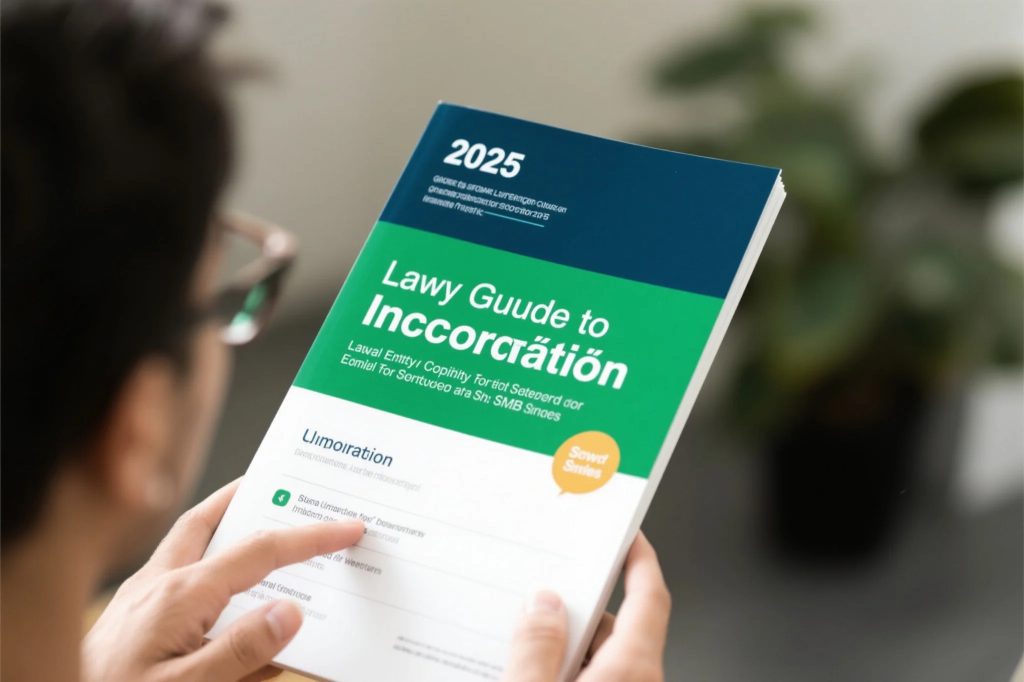Choosing the Right Business Structure for 2025
Selecting the appropriate legal structure forms the foundation of your company’s future growth and liability protection. As we approach 2025, the business incorporation legalities landscape continues to evolve with new tax provisions, compliance requirements, and liability considerations. Many entrepreneurs make the costly mistake of choosing a business entity based solely on short-term tax implications without considering long-term operational needs or exit strategies. The most common structures—sole proprietorships, partnerships, LLCs, and corporations—each carry distinct advantages and compliance obligations that must align with your specific business goals.
The post-pandemic business environment has introduced new considerations for entity selection, particularly regarding remote work arrangements and digital asset ownership. States have implemented varying regulations that affect everything from annual reporting requirements to franchise tax calculations. A thorough legal entity compliance analysis should evaluate not just your current situation but anticipated changes in revenue, staffing, and geographic expansion. This forward-looking approach prevents costly restructuring down the road when your business outgrows its initial legal structure.
Industry-specific regulations further complicate entity selection decisions. Certain professional services face restrictions on business structures, while technology startups may need particular configurations to accommodate venture capital funding. Engaging small business legal consulting services early in the planning process can help navigate these complexities while ensuring your chosen structure supports both immediate operational needs and long-term strategic objectives.
State-Specific Incorporation Requirements
Where you incorporate can significantly impact your compliance burden and legal protections. While Delaware remains popular for its business-friendly courts and well-developed corporate law, your home state might offer practical advantages for local operations. The business incorporation legalities in your chosen state govern everything from filing fees to director requirements to annual reporting obligations—factors that collectively influence your company’s administrative overhead.
Many states have updated their incorporation processes in recent years to accommodate digital filings and virtual operations. However, these streamlined processes sometimes obscure important compliance details that only become apparent during audits or legal disputes. Your legal entity compliance strategy should include a state-specific checklist covering formation documents, registered agent requirements, business licenses, and industry-specific permits. This becomes particularly crucial when operating across state lines, where foreign qualification requirements add another layer of complexity.
Emerging trends in state legislation, such as benefit corporation statutes and cryptocurrency regulations, create both opportunities and compliance challenges for new businesses. Some states now require specific disclosures in articles of incorporation for certain business types, while others mandate additional reporting for companies handling digital assets. Regular consultation with small business legal consulting professionals helps ensure your incorporation strategy remains aligned with the evolving regulatory landscape.
Essential Compliance Documents and Corporate Formalities
Proper documentation serves as the backbone of legal protection and operational clarity for any business entity. At formation, this includes not just the basic certificate of incorporation or articles of organization, but carefully drafted bylaws or operating agreements that govern internal operations. These foundational documents establish everything from ownership rights to decision-making processes to dispute resolution mechanisms—elements critical to your legal risk management strategy.
Ongoing compliance documentation often proves more challenging than initial formation paperwork. Meeting minutes, consent resolutions, and membership ledgers might seem like bureaucratic formalities, but they provide crucial evidence of corporate separateness that protects personal assets. A comprehensive compliance documentation services approach ensures these records are properly maintained while minimizing the administrative burden on your team. This becomes especially important when seeking financing, undergoing audits, or facing legal challenges.
Specialized compliance areas require additional documentation frameworks. Employee handbooks, data privacy policies, and intellectual property assignments all form part of a complete corporate compliance system. The most effective documentation strategies balance thoroughness with accessibility, creating living documents that actually guide operations rather than gathering dust in a virtual filing cabinet. This operational integration represents the gold standard in legal entity compliance for modern businesses.

Ongoing Compliance Obligations and Annual Requirements
Maintaining good standing with state authorities requires consistent attention to recurring compliance tasks. Annual reports, franchise tax payments, and business license renewals form the baseline of business incorporation legalities that many companies overlook until receiving penalty notices. These requirements vary significantly by state and entity type, with some jurisdictions imposing hefty late fees or even administrative dissolution for chronic non-compliance.
Ownership changes and capital structure modifications trigger additional reporting obligations that often surprise growing businesses. Many states require amendments to formation documents when adding owners, changing business addresses, or significantly altering the company’s purpose. Implementing a compliance documentation services calendar with reminders for these obligations prevents costly oversights that could jeopardize your legal protections or financing opportunities.
Industry-specific compliance adds another layer of ongoing requirements. Professional service businesses may need to maintain certain insurance coverages or continuing education credits, while product manufacturers face safety testing and labeling regulations. A robust legal risk management program identifies all applicable requirements and establishes processes to meet them consistently across the organization. This proactive approach proves far more cost-effective than reacting to compliance failures after they occur.
Tax Compliance and Reporting Structures
Your legal entity choice creates cascading tax obligations that require careful planning and documentation. The pass-through taxation available to LLCs and S corporations offers potential savings but comes with complex reporting requirements and potential limitations. Meanwhile, C corporations face double taxation but may provide advantages for businesses planning to reinvest profits or seek venture capital. Navigating these business incorporation legalities requires coordination between legal and accounting professionals to optimize both compliance and financial outcomes.
State and local tax obligations frequently trip up growing businesses expanding into new jurisdictions. Nexus rules determining when a business becomes subject to various tax regimes have become increasingly complex in our digital economy. Your legal entity compliance strategy must account for sales tax, income tax, and sometimes gross receipts tax obligations in each location where you have physical presence, employees, or significant sales. These determinations often benefit from professional analysis to avoid both overpayment and underpayment risks.
International operations introduce additional tax compliance layers, even for small businesses selling digitally across borders. VAT obligations, transfer pricing rules, and treaty benefits all require specialized knowledge. Many small business legal consulting firms now offer integrated international compliance services to help navigate these complexities while maintaining focus on core business operations. This support proves invaluable when entering new markets or dealing with cross-border transactions.
Risk Management Through Proper Entity Maintenance
Piercing the corporate veil remains one of the most significant legal threats to business owners, particularly in litigation-prone industries. Courts look for evidence that companies maintain proper separation from their owners through consistent observance of corporate formalities. A comprehensive legal risk management program includes protocols for maintaining this separation in banking, contracts, and day-to-day operations. This protection often makes the difference between business and personal liability when facing lawsuits or creditor claims.
Insurance coordination represents another critical component of entity risk management. Your corporate structure should align with your insurance program to eliminate coverage gaps and avoid unnecessary duplication. Directors and officers (D&O) insurance, professional liability coverage, and general commercial policies all interact differently with various entity types. Regular reviews with compliance documentation services providers ensure your coverage evolves alongside your business structure and risk profile.
Succession planning and ownership transition mechanisms protect businesses from disruption due to unexpected events. Buy-sell agreements, disability provisions, and estate planning integration all contribute to organizational resilience. These elements should be built into your corporate documents from inception and reviewed periodically as your business and personal circumstances change. Proactive planning in this area represents some of the most valuable small business legal consulting you can obtain.
Digital Assets and Emerging Compliance Considerations
The rapid growth of digital assets and blockchain technologies has created new compliance challenges for businesses of all sizes. Many states now require specific disclosures about cryptocurrency holdings or NFT transactions in certain circumstances. Your legal entity compliance framework should address how these assets are owned, transferred, and reported to avoid regulatory issues. This includes both assets held by the company and those involved in customer transactions or reward programs.
Data privacy regulations continue to expand at both state and federal levels, with significant implications for corporate governance. Businesses collecting customer information may need to appoint data protection officers, implement privacy-by-design protocols, or maintain specific documentation about data processing activities. These requirements should be integrated into your overall legal risk management strategy rather than treated as standalone compliance items.
Artificial intelligence usage policies represent another emerging area of corporate compliance. As businesses increasingly incorporate AI tools into operations and product offerings, they face questions about intellectual property rights, liability for AI-generated content, and ethical use guidelines. Forward-thinking companies are addressing these issues through formal policies documented as part of their compliance documentation services framework, reducing legal exposure while building customer trust.
When to Seek Professional Compliance Assistance
Initial formation represents the most obvious time to engage professional guidance, but far from the only one. Major business milestones like securing financing, adding owners, or expanding to new markets all warrant small business legal consulting review to ensure compliance structures keep pace with growth. These transitions often reveal gaps in existing documentation or unanticipated regulatory obligations that are easier to address proactively.
Audits or legal disputes naturally require professional support, but earlier intervention can often prevent these situations altogether. Regular compliance checkups using a comprehensive legal entity compliance checklist help identify potential issues before they escalate into costly problems. Many legal firms now offer subscription-based services that provide ongoing access to counsel for compliance questions, representing a cost-effective alternative to traditional hourly arrangements.
Industry-specific regulatory changes frequently necessitate professional interpretation and implementation guidance. When new laws or court decisions affect your sector, prompt consultation with experts in business incorporation legalities can mean the difference between smooth adaptation and disruptive compliance failures. This is particularly true for heavily regulated industries like healthcare, finance, and education where non-compliance can result in severe penalties or loss of licensure.
Building a Compliance-First Culture
Effective compliance extends beyond documents and filings to become part of your organizational DNA. Training programs that explain the “why” behind compliance requirements foster greater engagement than mere policy mandates. Integrating legal risk management principles into employee onboarding and ongoing development creates a workforce that recognizes compliance as a shared responsibility rather than an administrative burden.
Technology solutions can significantly reduce the operational burden of maintaining compliance. From automated filing reminders to digital document management systems, the right tools help ensure nothing falls through the cracks. Many compliance documentation services now incorporate these technological elements, providing user-friendly interfaces that make proper documentation a natural byproduct of normal business operations rather than a separate chore.
Leadership modeling of compliance priorities sets the tone for the entire organization. When executives demonstrate commitment to proper corporate governance through their actions and decision-making processes, it creates a trickle-down effect that reinforces compliance at all levels. This cultural approach transforms legal obligations from constraints into competitive advantages that enhance credibility with customers, partners, and investors alike.





